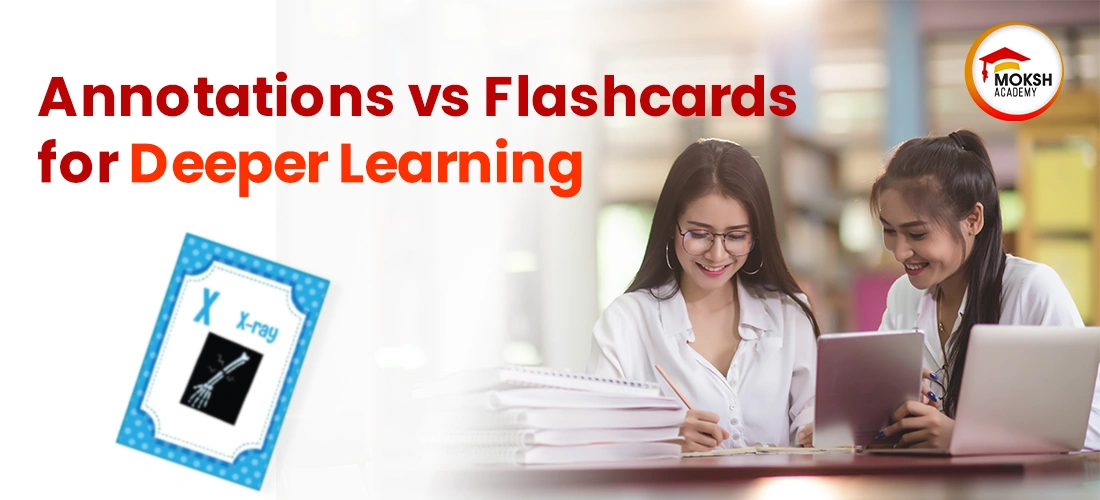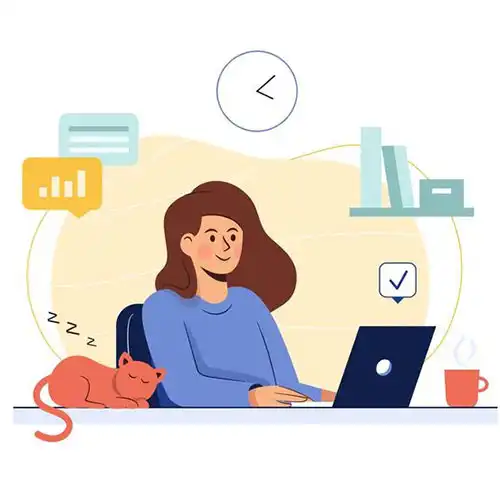
Introduction:
Learning is a lifelong pursuit, and in today's information-drenched world, finding effective strategies to retain knowledge is more crucial than ever. Two popular techniques, annotations and flashcards, claim the throne for deeper learning. But which reigns supreme? This blog dissects their strengths and weaknesses, guiding you toward a personalized learning toolbox.
Why Deeper Learning Matters:
In today's information overload, more than memorization is needed. We need to understand, analyze, and synthesize information, building intricate webs of knowledge that last. Deeper learning goes beyond rote recall, fostering critical thinking, problem-solving, and creativity. It's the bedrock of academic success and a valuable asset in any career.
The Power of Annotations:
Imagine transforming passive reading into an active conversation with the text. Annotations do just that. Underlining key points, jotting down questions in the margins, and drawing connections between concepts – these seemingly small actions light up neural pathways, forging deeper understanding.
Why Annotate? A Bounty of Benefits:
- Summary Extension: As you annotate, you condense information into your own words, creating a personalized summary that solidifies understanding.
- Theory Absorption: Annotations help unpack complex concepts, breaking them down into digestible pieces. Flowcharts, diagrams, and visual aids further enhance comprehension.
- Easy-to-understand Notes: Gone are the days of cryptic scribbles. Annotations make your notes clear and concise, readily available for future reference.
- High-Yield Time Saving: Annotating actively engages your mind, leading to better retention and reduced revision time.
- Flowcharts and Algorithms: Visualize complex concepts through diagrams and flowcharts, aiding comprehension and recall.
- Practical Pointers: Use arrows, symbols, and highlighting to highlight crucial points and connections.
- Organization is Key: Structure your annotations for easy navigation and reference. Utilize colour coding, headings, and mind maps for enhanced comprehension.
Flashcards: The Spaced Repetition
These compact study tools condense information into concise front-and-back pairs. The magic lies in spaced repetition, a powerful learning technique. Presenting information in short bursts at increasing intervals keeps your brain engaged, pushing you to recall and regain knowledge, strengthening memory and moving data into long-term storage.
Comparing Resources: Finding Your Learning Sweet Spot:
Both annotations and flashcards boast unique strengths, but their effectiveness depends on your learning style and preferences.
Self-Made vs. Ready-Made Notes:
- Self-Made Notes: Engage in active learning, promote personalized understanding, and require deeper processing. However, they can be time-consuming and need a more concise format of ready-made resources.
- Ready-Made Notes: Offer the advantage of pre-organized information and time-saving convenience. However, they need a more personalized touch and may cater to individual learning styles.
The Fusion Approach: Leveraging the Best of Both Worlds:
Instead of pitting them against each other, consider a synergistic approach. Annotate critical points in textbooks or lectures, then condense them into targeted flashcards for on-the-go revision. This fusion method leverages the strengths of both techniques, optimizing knowledge retention and understanding.
Effective Flashcard Utilization:
- Front and Back: Write the question on one side and the answer on the other. This forces you to actively recall information, not just recognize it.
- Everywhere, Anytime: Keep flashcards handy and tackle them whenever you can—waiting for the bus? Crush some flashcards!
- Daily Target: Set achievable goals for the number of flashcards you'll tackle daily. Consistency is key!
- Embrace Randomness: Don't just stick to your strengths. Shuffle your decks regularly to ensure you're revisiting all topics, including weaker ones.
- Start Early: The sooner you use flashcards, the more time your brain has to solidify the information.
Conclusion:
The quest for deeper learning isn't a zero-sum game. Annotations and flashcards, wielded strategically, Mentors from Moksh Academy become powerful allies in your knowledge journey. Experiment, discover your unique learning blend, and unleash the full potential of each technique. Remember, the most effective strategy is the one that ignites your curiosity, fuels your understanding, and propels you toward a deeper, more meaningful exploration of knowledge.



